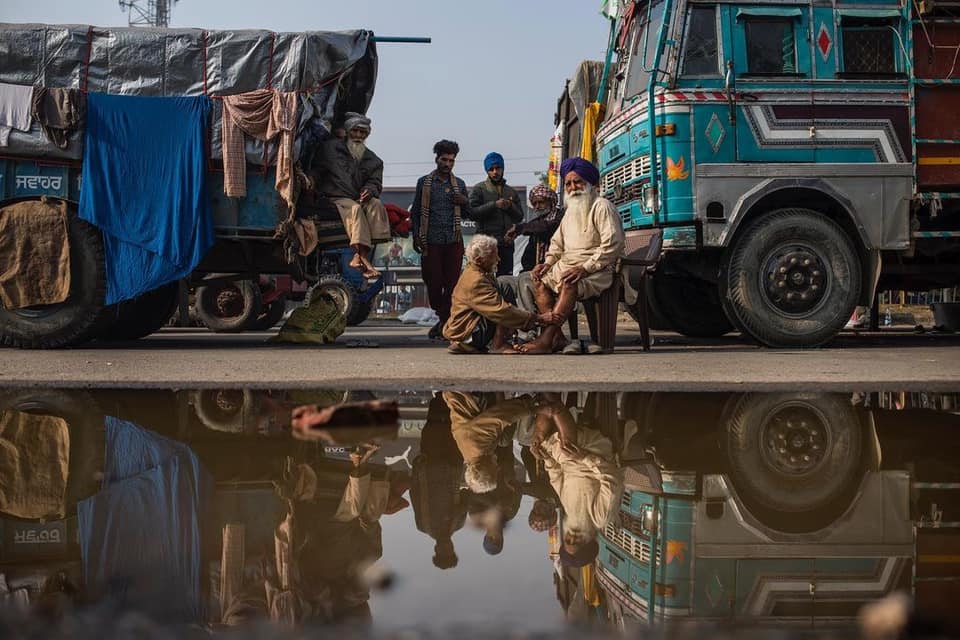The farmers, who are protesting against the three agricultural laws of the Indian government, are sitting on a dharna along the borders of Delhi with Uttar Pradesh and Haryana. This led to long traffic jams on important routes leading to the national capital. The fifth round of talks between the government and protesting farmers on Saturday was also inconclusive. Now another meeting has been called between the Center and the government on 9 December.
Advisory of Delhi Traffic Police:
Delhi Police informed the passengers about the closure of Sindhu, Lampur, Auchandi, Safiabad, Piyau Maniyari and Saboli border via Twitter.
National Highway-44 closed on both sides.
Police suggested passengers to take alternate routes like National Highway-8, Bhopura, Apsara Border and Peripheral Expressway.
Ticker borders are jammed with tractors and people are busy cutting vegetables, solar panels have been installed for mobile charging, medical camps have been set up and the elderly are resting there and drinking hookah.
Delhi Traffic Police said that routes to Dhansa, Daurala, Kapashera, Rajokri National Highway-8, Biswasan / Bajghera, Palam Vihar and Dundahera border are open for going to Haryana.
The current agitation for farmers in Punjab has many lessons. One of them is that politics is short game, a 20-20 match, while economy is a long, five-day Test match. Farmers of Punjab are playing 20-20 and Sarkar Test matches. The second lesson due to this mismatch is that reforming democracy is difficult. A populist can defeat the reformer in the election by promising to give one rupee per kg of rice.
Therefore, the successful reformer spends more time selling the improvements, less in implementing them. India’s reformers have failed in this case and that is why reforms in India happen secretly even after 1991 and 29 years, and Indians still think that reforms make the rich rich and the poor poor, while there is many evidence to the contrary.
Prime Minister Modi forgot this lesson and did not get the support of the country in the formulation of three agricultural laws in June. His government chose to impose laws through Parliament, without talking to the opposition, states or peasant organizations. It spread rumors that the minimum support price (MSP) and government procurement would stop. They can still improve it. The third lesson is that when the majority is calm and unorganized, small, organized and financed groups rob the national interest in democracy.
The agents behind the movement are the procurement agents of the Agricultural Produce Marketing Committee (APMC) mandis, which will lose a commission of Rs 1500 crore annually. Also, there are rich farmers of Punjab, who are part of the 6% farmers in India who get the benefit of MSP. Both are powerful. Aadhatiyas invest money in elections and are often politicians and leaders of agricultural unions.
You would also love to read: Best visitable places in Delhi for couples.

